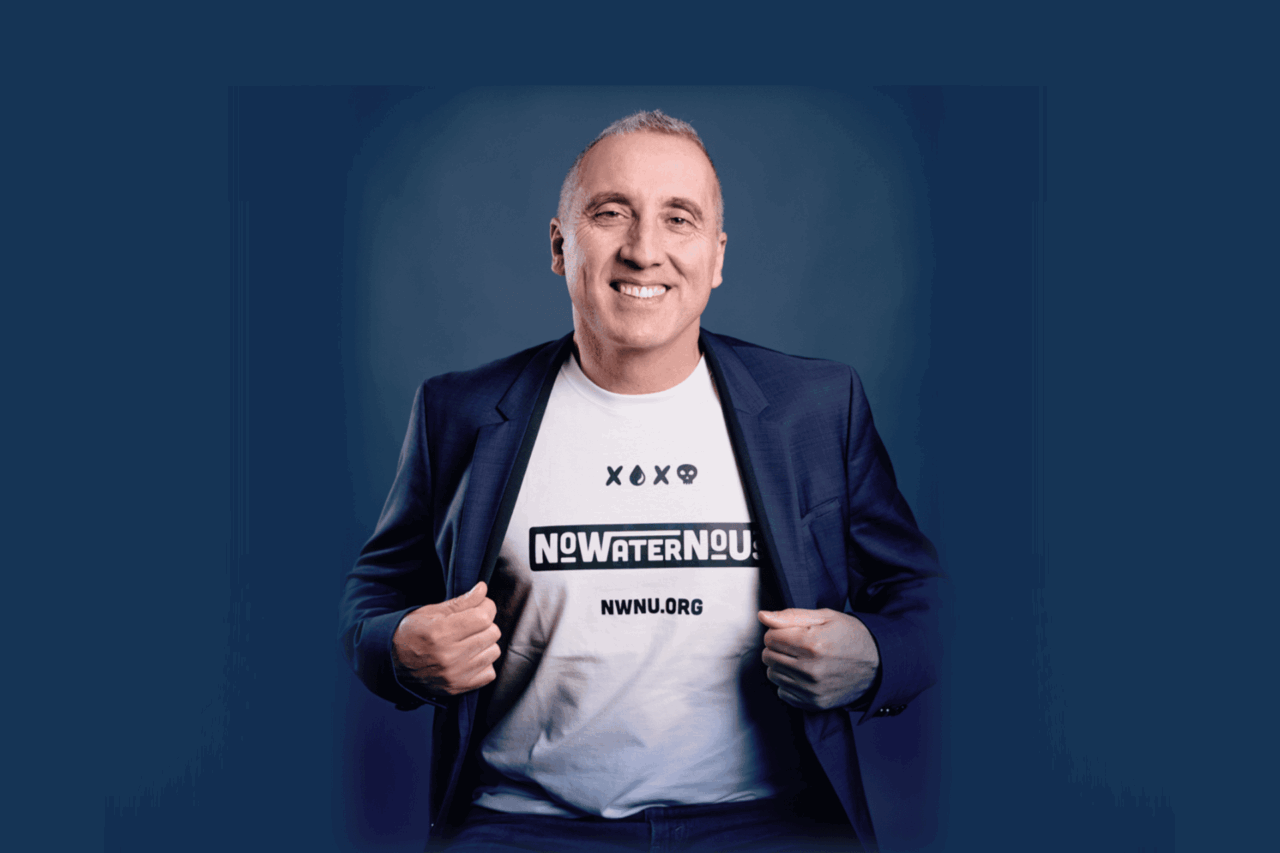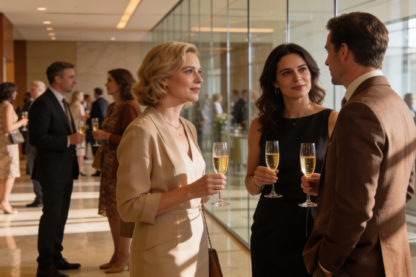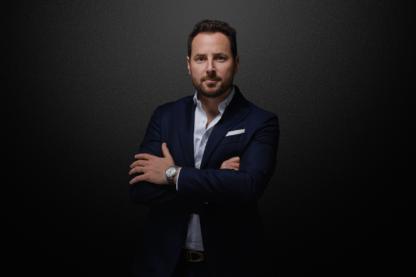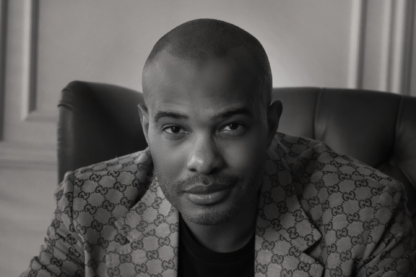Photo Credentials: Sylvie Castioni
As global pressures on freshwater resources intensify, the luxury sector faces a powerful reckoning with its environmental impact — and a unique opportunity to lead. In this exclusive interview, Alexander Chetchikov, WLCC President, sits down with Malek Semar, newly appointed member of the WLCC Board, to discuss the intersection of luxury, sustainability, and global water access. Malek is the Founder of No Water No Us, an internationally recognized water advocate and speaker whose influence spans policy, innovation, and public engagement. His life’s mission? To ensure that every drop counts.
From the future of wastewater reuse to redefining water as the new luxury, Malek shares his bold, urgent vision — one that blends environmental activism, cultural diplomacy, and pragmatic business sense.
Alexander Chetchikov: The Global Water Crisis: Where Do We Stand?
You’ve dedicated your life to advocating for water conservation. What do you see as the most
urgent water-related challenges the world is facing today?
Malek Semar: When nature is suffering, people die—and nature, too, thirsts for clean water. Before talking about water as a social, environmental, and economic issue, do we know the water itself? If water could speak, a single drop could answer. There is only one Water, and it is everywhere. It hears and sees everything and knows everything. Each drop contains all the truth.
Each drop is 4.5 billion years old, meaning that the quantity is the same since the very beginning. Each drop has crossed every ocean, watered every mountain and forest. The same drop we drink was drunk by another human, animal, or plant several times. The drop that is causing controversy today has occurred many times across the globe and has been a catalyst for the birth of all civilizations. Life exists due to the tireless work of this same drop in the water cycle despite waste, pollution, speculation, lack of respect, and recognition. Water is life; it is not only a quote.
So, where do we stand?
Imagine adding a single drop of poison to a one-liter bottle of water. Just one drop—and the entire bottle is contaminated. Now, imagine that same bottle filled with 80% poison. That bottle is our planet. Right now, 80% of the world’s wastewater is dumped back into nature without any treatment. Eighty percent!
It’s too late to fix everything or save everyone, but doing nothing would be a grave mistake. We must do all we can to limit the devastating consequences ahead. This is where we stand.
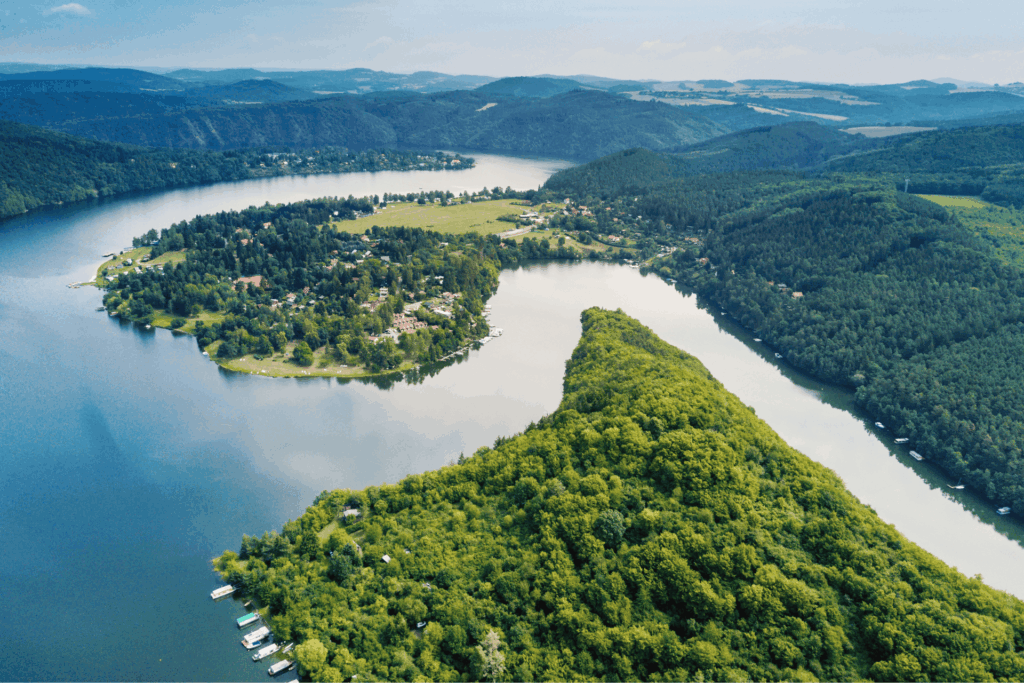
AC: The Future of Clean Water: Innovation & Solutions
Technology is rapidly evolving in water purification, desalination, and conservation. What groundbreaking innovations excite you the most in the quest for sustainable water solutions?
MS: We need more affordable and sustainable solutions for the water sector, both in sanitation and drinking water treatment.
A technical solution is not enough to solve water issues. We need to understand the beliefs of each population and their link to water. The culture is the link between humans and nature, between technique and nature. One key difference between developed and developing countries lies in wastewater management. Countries that have advanced are those that treat and manage their wastewater effectively. As for the others, the gap is clear. The Glaas report from the United Nations explains that one dollar invested in water means four to seven dollars generated as a return to the economy.
Wastewater is our lifeline. No one dies because they have no water to drink. However, 4 million people die every year, and millions are sick every day, because the water they consume is unhealthy. Just one drop can be the difference between a better world and a worse one. The solution is in water reuse.
Let’s talk about a concrete solution — more data, less concrete. Decentralized and positioned closer to the sources of pollution: people and their activities. Coordination must be global, but solutions need to be tailored locally. The key is to tackle pollution as close to its source as possible — human beings and what they do. The container offers a practical answer: whether 20 feet or 40 feet, it speaks a universal language.
For example, FIA (France Industries Assainissement) developed a compact container-based wastewater treatment plant that is mobile, intelligent, and cost-effective. It integrated the notion of a circular and virtuous economy with the reuse of water and sludge output (irrigation, fertilizer, compost and more). The station is a complete treatment facility housed in a container, designed for easy transport, quick installation, high mobility, and simplified maintenance. Its flexible and modular design also allows it to be adapted for water purification, desalination, and conservation purposes.
In 2017, Irina Bokova (UNESCO, Director General 2009/2017) said: “At a time when demand is growing and limited resources are increasingly stressed by over-abstraction, pollution and climate change, we simply must not neglect the opportunities from improved wastewater management. We cannot afford to waste wastewater”. – And I believe the solution is proper water management, for everything.
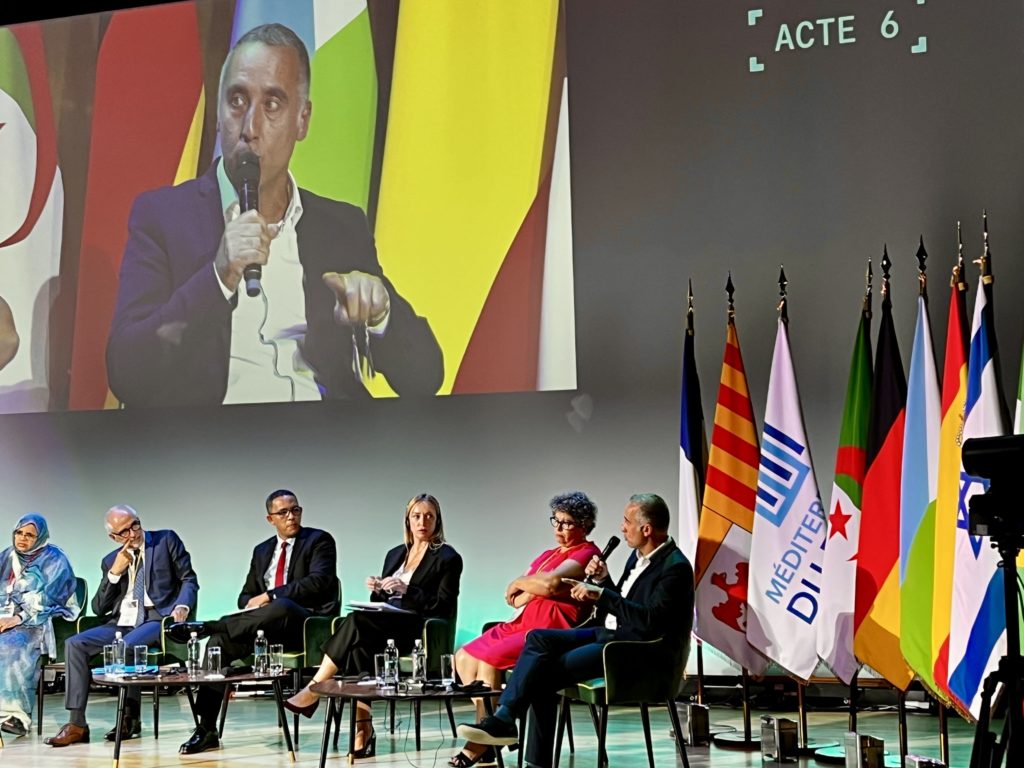
AC: The Role of Governments & Corporations
From policymakers to global corporations, who should bear the greatest responsibility for ensuring access to clean water? Are governments doing enough, or does the private sector need to step up?
MS: Clean water is essential for public health, whether it is used for drinking, domestic use, food production, or recreational purposes. Improved water supply and sanitation, together with better water resources management, stimulate economic growth in countries and contribute greatly to poverty reduction.
In 2010, with UN Resolution 64/292, water became a common good and a human right, underscoring the significant responsibility it is for all of us.
In 2015, the Sustainable Development Goals (SDGs) arrived; the same year, African water ministers met in Ngor and signed the declaration of the same name to meet the 2030 Agenda. This is the action part, and this means that the state must involve companies, startups, and large groups to accelerate.
But over the past fifteen years, the situation has only worsened. In 2025, 30% of the world’s population will lack access to safe drinking water, and 60% will lack adequate sanitation. In 2050, the global population will reach 10 billion, with most people born in regions already facing severe water shortages. The emergency is no longer a future threat; it’s already here.
It’s not easy to predict anything for the next 3 years. But things are moving quickly. Today, we can achieve more in three years than we could in twenty back in 2010. Anyway, we are talking about the survival of humanity. Responsibility lies with everyone. Rights do not cancel out duties — this applies to governments, organizations, and every individual citizen.
In the world as it should be, water is free for everyone, and we find new business models to make money around it. Artificial Intelligence will play a key role. In this future, we’ve finally connected business with climate responsibility.
AC: No Water No Us: Driving Real Change
Through your organization, No Water No Us, you’ve been actively working to address water crises worldwide. Can you share some of the key initiatives and projects you’ve launched to promote water sustainability and ensure access to clean water?
MS: For Water, too much is never enough.
No Water No Us has worked for years to raise awareness and offer sustainable solutions for water issues. To date, we have operated in over 30 countries. Our efforts are amplified through partnerships and a wide network of dedicated artists and athletes. By utilizing art and sport, supported by my associates Blaise Matuidi and Yohan Benalouane, we create a positive social impact by establishing our initiatives and supporting existing water-focused projects.
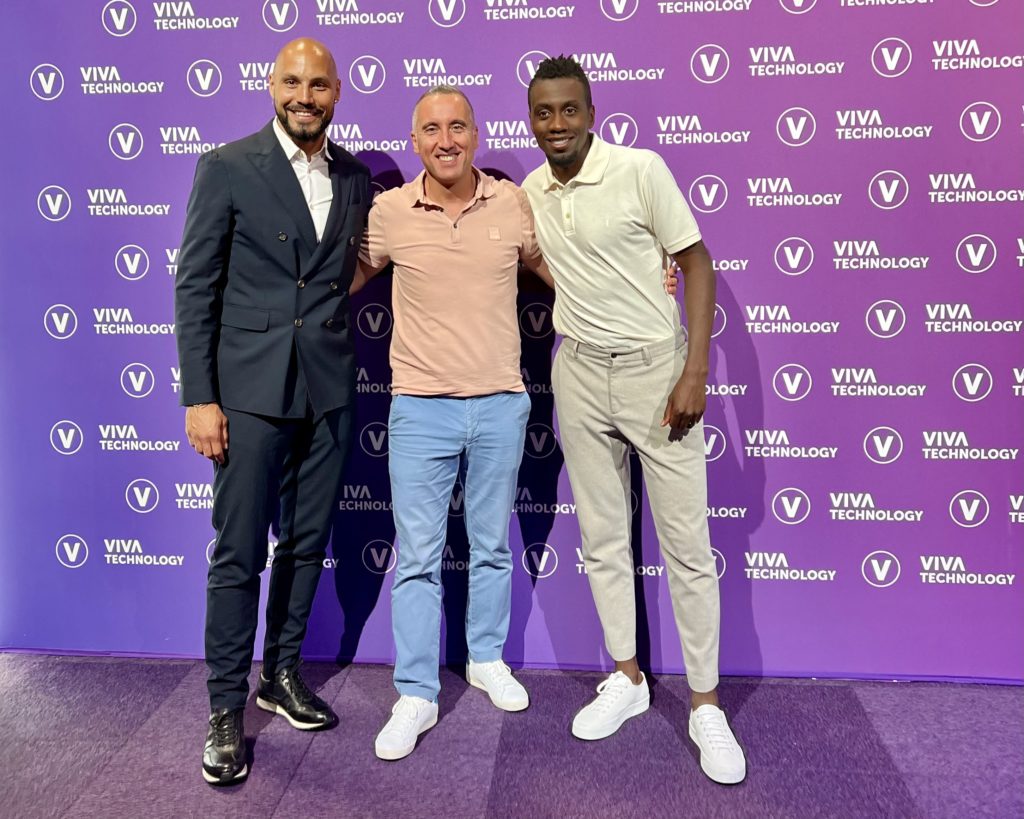
Following the Sustainable Development Goals, we focus on wastewater, drinking water, and biodiversity. Unsafe water affects biodiversity, public health, and national economies, impacting society, the environment, and the economy alike.
We created a show for water awareness, “L’Eau Mais”, had the label Season Africa 2020. Touring nine African countries, the show uses dance, music, and culture to explore the relationship between water and human activities, for example, highlighting water-related conflicts in Egypt and the connection between water and population growth in Nigeria. This show is set to become a free educational platform for schools.
From November 2022 to February 2024, four of our ambassadors cycled across 20 countries, delivering school talks, humanitarian projects, and awareness campaigns to learn about water issues across diverse regions and communities.
Through our Climb for Water initiative, we use mountain climbing expeditions to raise awareness of water issues at the world’s highest summits. Alongside the climbs, we organize conferences, interviews, and international solidarity installations focused on access to water. In 2024, in Bolivia, we will transport several tons of equipment to 4,000 meters above sea level to install water supply systems in UNA, a village at the foot of Illimani, the highest peak in Bolivia’s Cordillera Royale. Expeditions to India and Tibet are planned for 2026.
In partnership with UniLaSalle High School, engineering students traveled to Algeria to study sustainable solutions related to olive oil production and water use.
In collaboration with major brands, we organize Talks to explore innovative solutions. We bring together public and private figures, water decision-makers, artists and athletes, civil society, and government. After successful events in Paris with Cadillac and in Tunis with EY and CJD, the next Talks will take place in Geneva in March 2026, before Kinshasa and Brazzaville.
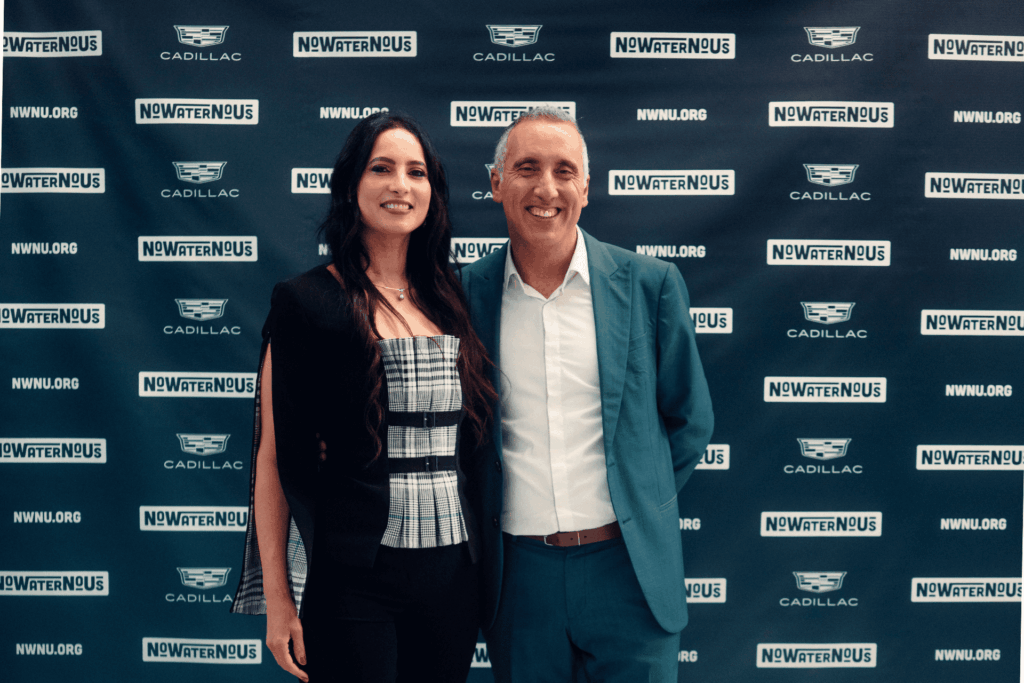
AC: Luxury Hospitality & Water Sustainability
Luxury hotels, resorts, and spas often rely on water-intensive experiences, private pools, golf courses, and wellness treatments. What are the best strategies for high-end hospitality brands to reduce their water footprint while maintaining an exclusive guest experience?
MS: For example, it takes 250 liters of water to produce a single cup of coffee (water footprint). So, every process uses a significant amount of water.
A shower running without turning off the tap can consume up to 200 liters. I tell myself that the real problem lies elsewhere; I would rather use 1,000 liters of water, treat it completely, and return it clean to the water cycle, than use one liter and discharge it polluted.
I keep coming back to wastewater management and reuse as a salvation plank; this is true for all individuals and all human activities, including Luxury hotels, resorts, and spas.
AC: Luxury Industry as a Force for Water Sustainability
The World Luxury Chamber of Commerce unites leading luxury brands to drive collaboration, innovation, and business growth. Given your expertise, what impactful initiatives could WLCC launch to help the luxury industry lead the way in global water sustainability efforts?
MS: In the collective mindset, luxury and sustainability are often seen as opposing forces. However, for years now, a new form of luxury has been emerging—one rooted in responsible water use. By 2030, LVMH aims to reduce its global water footprint by 30% through its Life 360 program. In 2021, Longchamp launched the Pliage Green line, creating sustainable products made from 100% recycled yarn, partly sourced from ocean plastic waste, before extending this approach to its entire Pliage range, ready-to-wear, accessories, and eyewear. Louis Vuitton established a Sustainable Department in 2018, targeting a 55% reduction in CO2 emissions by 2030. Guerlain, often hailed as a leader in sustainable beauty, has championed eco-design principles across all its production lines since 2017.
Numerous other initiatives complement these efforts. For instance, between 2019 and 2022, Hennessy and Loro Piana reduced water consumption in their distillery and manufacturing facilities by 26% and 25%, respectively.
In my view, WLCC should, first and foremost, be a worthwhile sounding board and act as a reflector and as an intermediary, sharing best practices that combat climate change and safeguard our most precious resource: water.
We can initiate by arranging a Talk No Water No Us about luxury, in collaboration with the World Luxury Chamber of Commerce, giving a voice to luxury brands genuinely committed to protecting the planet.
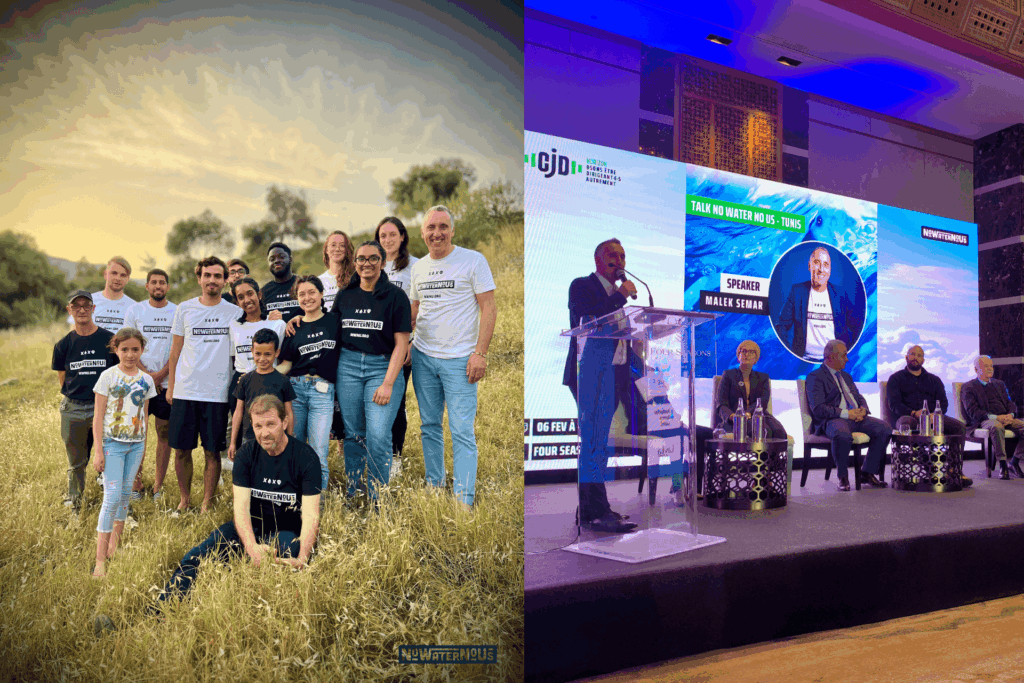
AC: Water as the New Luxury?
With clean water becoming an increasingly scarce resource, do you believe water itself is becoming a new form of luxury? How can we ensure it remains accessible to all while maintaining its importance in high-end experiences?
MS: Time is changing, as well as mindsets. Luxury should be a model that has a systematic view of its environmental impacts, not one that follows. According to the Boston Consulting Group (BCG) study, 64% of future luxury consumers from the ‘Z generation’ want committed companies.
We don’t have a choice. Every civilization was founded around a water source, and vanished when that source dried up. Life itself is the ultimate luxury, a truth universally recognized. Water is life. While some may see it as just a proverb, the reality is clear: water truly is life. In conclusion, water is our greatest luxury. No Water, No Luxury.
Robert Francis Kennedy, the 64th United States Attorney General (1961–1964), once said: “We are witnessing something unprecedented: water no longer flows downstream; it flows towards money.”
I hope that in the future, water will be seen more as a source of peace rather than conflict or profit. And I hope for global water governance endowed with real authority. While solutions must be tailored locally, coordination needs to be worldwide, because water knows no borders.
I remain optimistic. “We can fight, water will bring us together.”
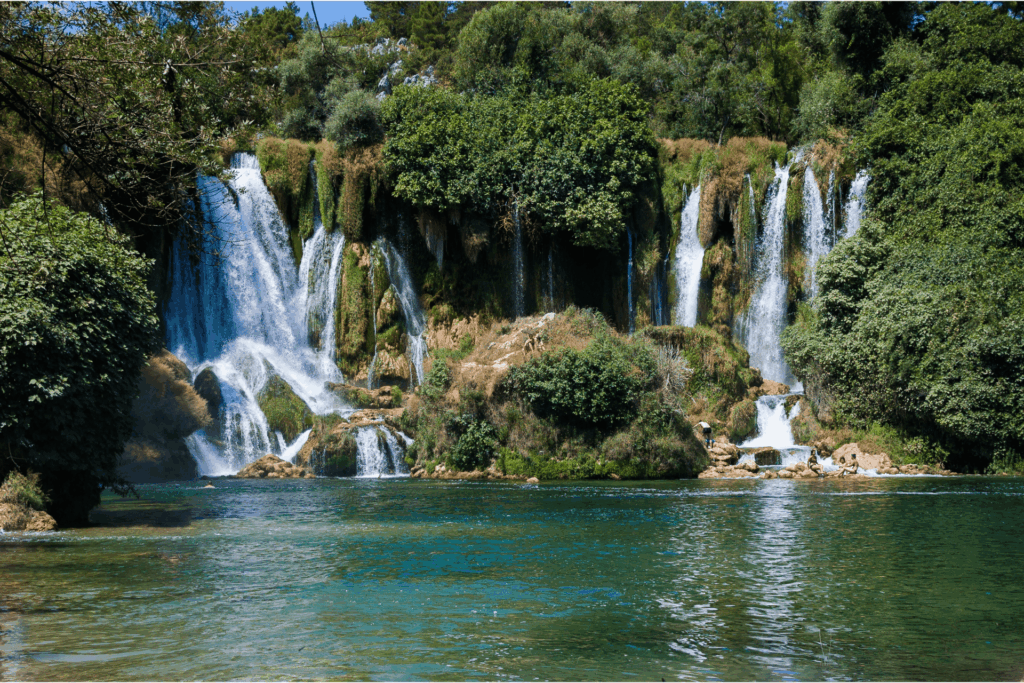
A Closing Word
In an age where climate imperatives are no longer distant warnings but daily realities, Malek Semar’s insights offer a vital reminder: water is not only the world’s most essential resource — it is its most sacred. Through No Water No Us and his role on the WLCC Board, Malek is challenging industries, governments, and individuals alike to treat water not as a commodity, but as a common good — and, yes, a luxury to be preserved for all.
As the luxury sector evolves its vision of excellence in a climate-conscious era, Malek’s vision is clear: true luxury respects the planet. And water — ancient, universal, and irreplaceable—must be at the heart of that transformation.
Want to read more exclusives? Check out our news and insights: https://worldluxurychamber.com/insights-news/ & sign up for our newsletter here: https://worldluxurychamber.com/wlcc-community/


